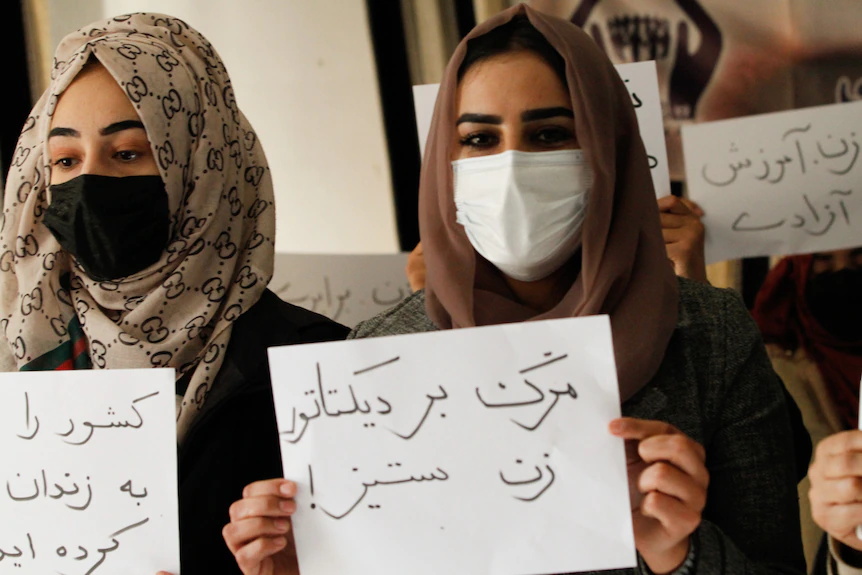This article discusses the themes of education and gender inequality in Afghanistan.

"I genuinely think that [Mullah Haibutullah Akhundzada] thinks that this is what an Islamic society ought to look like, and he had this very specific view of where women or young girls should be within the society, which is within their households. So I guess for all intents and purposes, this is a gender apartheid. This is nothing short of that."
– Obaidullah Baheer, Lecturer of Transitional Justice at the American University in Kabul
Oppressive Education Policies
Since assuming control of the country in August 2021, the Taliban has enforced oppressive education policies that target women in Afghanistan and denies them their education rights.
In the Taliban government’s recent clampdown early last month on the rights and freedoms of women in Afghanistan, the Afghan Ministry of Higher Education indefinitely suspended access to university education for all female students in the country.
The order to deny women access to university education comes nearly 17 months after the Taliban’s ban denying girls secondary school education. Women in Afghanistan are also restricted from most employment and are banned from parks and gyms.
The Taliban’s education policies allow girls to continue education in schools from grades 1 to 6, but all higher education is denied to them by policy and social barriers. Nida Mohammad Nadin, the minister of higher education in the Taliban government, defends the policies by citing the prevention of the mixing of genders in higher education levels as a benefit to Afghan society.
Impact of the Ban
Previously ruling from 1996 until 2001, the Taliban have historically subjected women to violence, forced marriages, and the denial of participation in most social and economic activities.
Now amid an already rapidly worsening humanitarian crisis in Afghanistan, the Taliban government’s ban on university education means that almost all education is denied to women in the country.
The Canadian government, along with diplomats from other Western countries, have repeatedly stated that the Taliban lifting their ban on women and girls accessing education is necessary for discussions to begin regarding international recognition of the Taliban government. The international community does not recognize the Taliban’s rule as an official government, and instead Canada and the U.S. continue to impose strict sanctions on the Taliban.
Despite the raised international calls for action, however, the Taliban government continues to keep in place its restrictive education policies that treat women as second-class citizens.
Student Action
With human rights and the universal right to education under threat, students and youth globally carry a responsibility to defend the importance of education and human rights for women and girls in Afghanistan.
So, what can you do to help?
Write to local government representatives about your concerns for the rights of girls and women in Afghanistan.
Advocate for and support Afghanistan refugees in your community.
Donate to organizations that are supporting women and girls in Afghanistan during this crisis.
Canadian Women for Women in Afghanistan
Afghanaid
Global Fund for Women
International Rescue Committee (IRC)
Through taking actions to uphold global human rights and to stand in solidarity with the women and girls in Afghanistan, you can help lead real change.
Subscribe to the SFHRA newsletter to hear future updates on global human rights issues!
